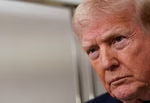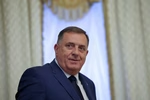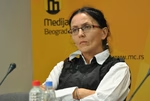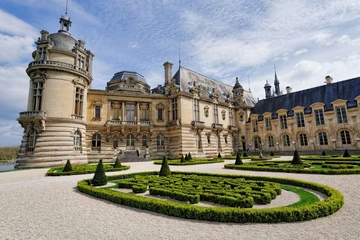PIC SB calls on Bosnian officials to work on dialogue and refrain from divisions
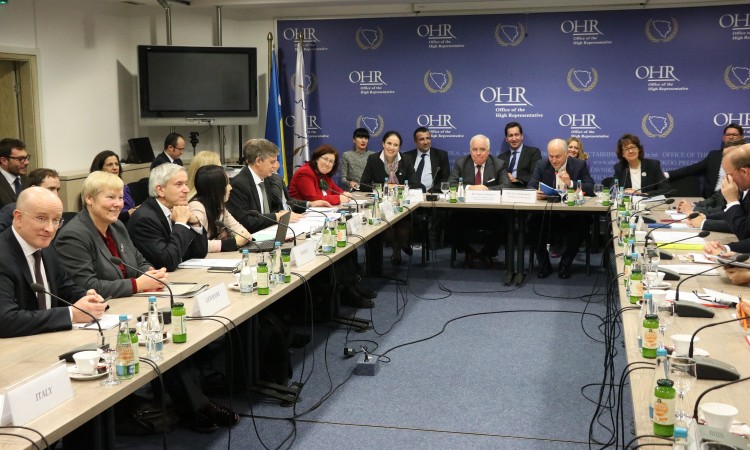
The Peace Implementation Council's Steering Board (PIC SB), which provides political guidance to the High Representative in Bosnia and Herzegovina, mostly dealt with Bosnia’s post-election situation and one of their conclusions was that the election process must change so that Bosnian citizens would have confidence in the election, Bosnia’s High Representative Valentin Inzko said on Wednesday.
He warned that the government formation would be slow unless the Federation of Bosnia and Herzegovina’s House of Peoples is appointed as soon as possible.
The High Representative is appointed by the international community to monitor the civilian implementation of the Dayton Peace Agreement, which ended the 1992-1995 war in Bosnia.
The PIC SB concluded that after the October general election, Bosnian officials should refrain from obstructing the formation of the government and they should work towards cooperation and dialogue, free of divisive rhetoric.
They called on Bosnian institutions to submit the remaining answers to the EU Questionnaire which would allow the European Commission to assess the readiness of Bosnia and Herzegovina to move forward on its EU integration path.
Bosnia and Herzegovina formally applied for the EU membership in February 2016 and was to provide the answers to the 3,242 questions of the EC's Questionnaire within six months. However, it took the country a year to complete the process, because of deep political and ethnic divisions.
In February this year, Bosnia's senior officials handed over the answers to the Questionnaire to the EC President Jean-Paul Juncker, and the country is now expecting the Commission's opinion to its EU membership application.
The government of the Bosniak-Croat dominated Federation of Bosnia and Herzegovina (FBiH) entity, one of two semi-autonomous entities in Bosnia and Herzegovina, should adopt the necessary acts concerning the formation of the FBiH House of Peoples, the PIC SB said.
The Steering Board also called on Bosnian officials to implement the Sejdic/Finci and other related decisions of the European Court of Human Rights and to refrain from making the implementation of these decisions more challenging.
In 2009, the Roma representative Dervo Sejdic and former Head of the Jewish Community, Jakob Finci, sued Bosnia for its discriminatory Constitution barring them – as they are neither Bosniaks, Croats or Serbs - from running for Presidency. The European Court of Human Rights in Strasbourg ruled in favour of Sejdic and Finci, saying the state is discriminating against them as a Roma and a Jew.
The Constitution which stipulates that Bosnia's Presidency consists of three representatives coming from each of the said constituent peoples was never amended despite this ruling.
Denis Hearnne, the High Representative’s Principal Deputy, said that Russia did not join the PIC SB’s Communique because they did not agree with certain parts of it. When asked why the Russian Ambassador left, he said the journalists should ask him that.
After the PIC SB session, the Russian Embassy said they “disagree with a series of tendentious, biased, and backward assessments of the situation in Bosnia document, which include characteristics about the general election, prospects and conditions for its realisation, and the formation of Bosnia's authorities.”
"The international community should refrain from giving lessons, and it should confine itself to giving professional recommendations," the Embassy added.
They stressed their dedication to the Dayton Peace Agreement that ended the war in Bosnia, and Bosnia’s sovereignty and territorial integrity. They said they also support the equality of all three constituent peoples, Bosniaks, Serbs and Croats, and equality of Bosnia’s two entities the Federation of Bosnia and Herzegovina and the Republika Srpska.
The Embassy also said they see no alternative to understanding and dialogue, joint respect among peoples, as well as compromise and consensus as basic principles for building trust, peace and stability, and Bosnia’s social and economic development.
Kakvo je tvoje mišljenje o ovome?
Učestvuj u diskusiji ili pročitaj komentare





 Srbija
Srbija
 Hrvatska
Hrvatska
 Slovenija
Slovenija











